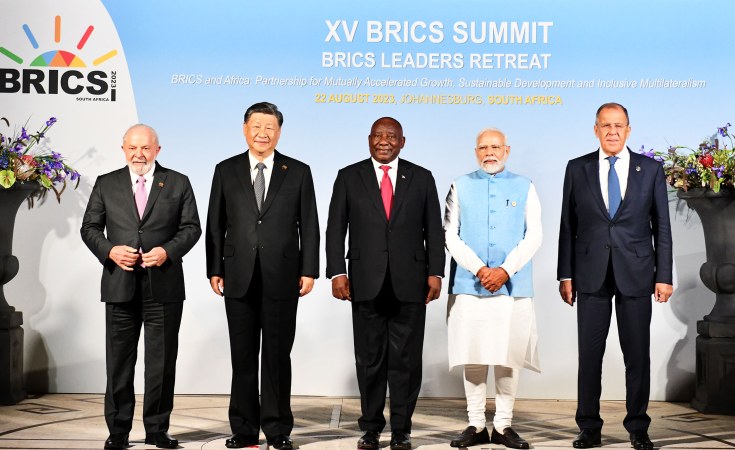Although the New Development Bank has always stated its intention to increase its local currency fundraising and lending, it has rarely provided details on the mechanisms of doing so. It is targeting bond issuances in local currencies of India, the United Arab Emirates and Brazil.
The New Development Bank (NDB), the Shanghai-based lender better known as the "BRICS bank", has thrown its weight behind the plan by its founding member countries to push for the use of local currencies to facilitate trade and transactions.
The use of local currencies for trade and finance to rely less on the US dollar is not new on the agenda of the BRICS bloc -- an acronym for a group of countries consisting of Brazil, Russia, India, China and South Africa.
But at the 15th BRICS Summit in Johannesburg, which begins on Tuesday, 22 August, South Africa is expected to come up with mechanisms to unseat the dollar as the world's de facto global currency.
The NDB has also embraced the plan to deepen the use of local currencies of its founding BRICS members when it executes funding transactions on infrastructure and sustainable development projects.
Vladimir Kazbekov, the vice president and chief operating officer of NDB, said the bank plans to develop local/national currency transactions between BRICS member countries. This would allow one BRICS member to use its currency to finance projects with a fellow member in its country.
"For example, a project in South Africa can be financed...


